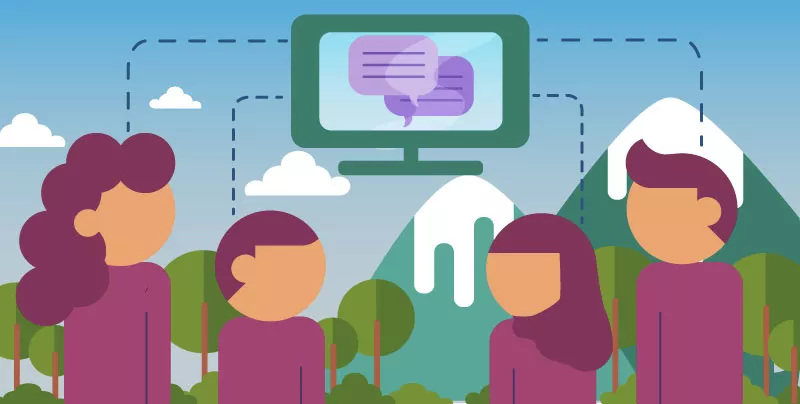EPALE discussion: how to contribute to Environmental awareness in the field of adult learning

As part of our January-March 2020 focus on Environmental awareness and protection, EPALE is organising a written discussion on how to contribute to Environmental awareness in the field of adult learning.
The discussion will take place on this page on 18 March between 10:00 and 16:00 CET and will be moderated by EPALE Thematic Coordinator Altheo Valentini and by EPALE Content Assistant Claudia D'Eramo.
► Share your stories, tips, case studies and good practices with the EPALE community!
Also, if you’ve ever been involved in successful projects dealing with environmental protection and awareness through adult learning, or if you have developed any relevant methodologies that aimed to improve or introduce the environmental consciousness in the adult learning field – share your story with the other participants in the comments below!
The discussion on 18 March will include the following topics:
|
► Comments will be open on 16 March so participants can introduce themselves or post their comments in advance.
Komente
Hmm, tas, ka kāda lieta ir
Climate Conference Slovakia
thank you for sharing the Climate Conference Slovakiainitiative, I think this may be very helpful for our community. I will look into it!
Claudia D'Eramo (Moderator)
Basically until it's not a
But the FFF movement shows the opposite
FFF - only the beginning
Fridays for Future movement
did you take part to the Fridays for Future movement?
It was really awakening the consciences... and had a great spread in the field of education.
May this awakening teach us that there are some little-explored needs still to be faced?
Claudia D'Eramo (Moderator)
Recycling in schools
And watch films about plastic waste in China
I agree. In my experience
This is a great practice in schools
Urban gardens
Great projects
great projects!
Thanks for sharing them with us, so that you can inspire other organisation and educators.
EUgolearning is such an interesting tool! I invite everyone to have a look at it!
Also, Gardeniser may open up interesting opportunities.
Ru:rban too, in the Urbact "family", offers great inputs... please have a look at it.
Thank you so much Nicolas, very well done!
Claudia D'Eramo (Moderator)
Slovak priorities for the implementation of the UN 2030 Agenda
Slovak priorities
it queues up the Slovak priorities and helps others to have a clear picture of what your nation's efforts are about.
Claudia D'Eramo (Moderator)
ANO 17 ilgtspējīgās attīstības mērķi
Piekrītu viedoklim
Piekritīšu, ka vajadzētu
No deadlines and narrower objectives
Claudia D'Eramo (Moderator)
I totally agree. The world
Sustainable Development Goals
Thank you Sofija for your contribution.
Claudia D'Eramo (Moderator)
ANO 17 ilgtspējīgās attīstības mērķi
Best practices from Ireland
Irish Rural Link
To look deeper into their objectives and mission, please have a look at the following link: https://www.irishrurallink.ie/about-us/
Claudia D'Eramo (Moderator)
Responsible Consumption and Production
They all are interconnected
I agree with you, they are
Teachers Training for Environment
but whereever AE Trainers are
Integrating global issues in the creative English language class
You can have a look at this resource about teaching English integrating global issues, such as SDGs!
https://www.teachingenglish.org.uk/sites/teacheng/files/PUB_29200_Creativity_UN_SDG_v4S_WEB.pdf


sveika, piekrītu Tev par